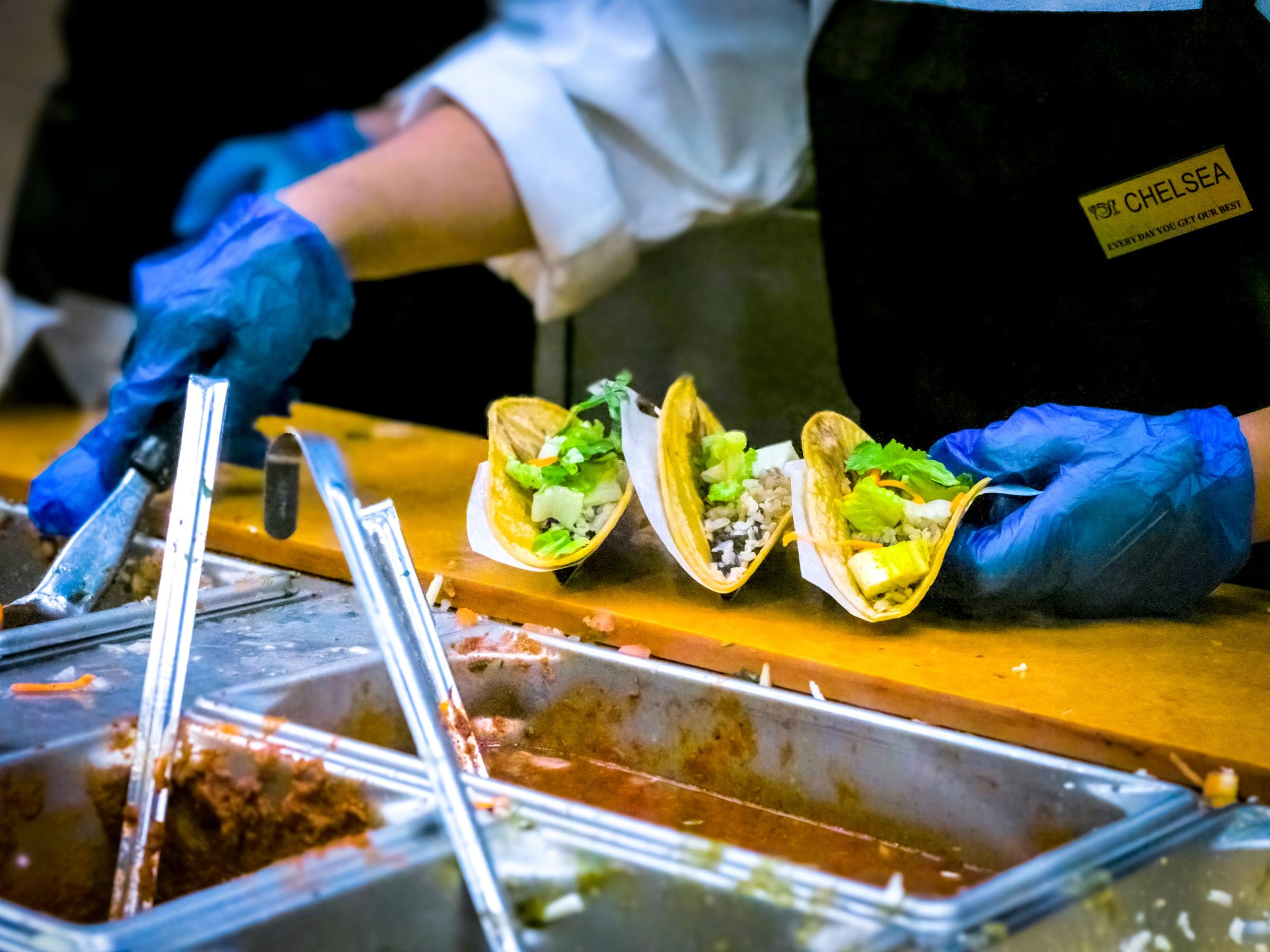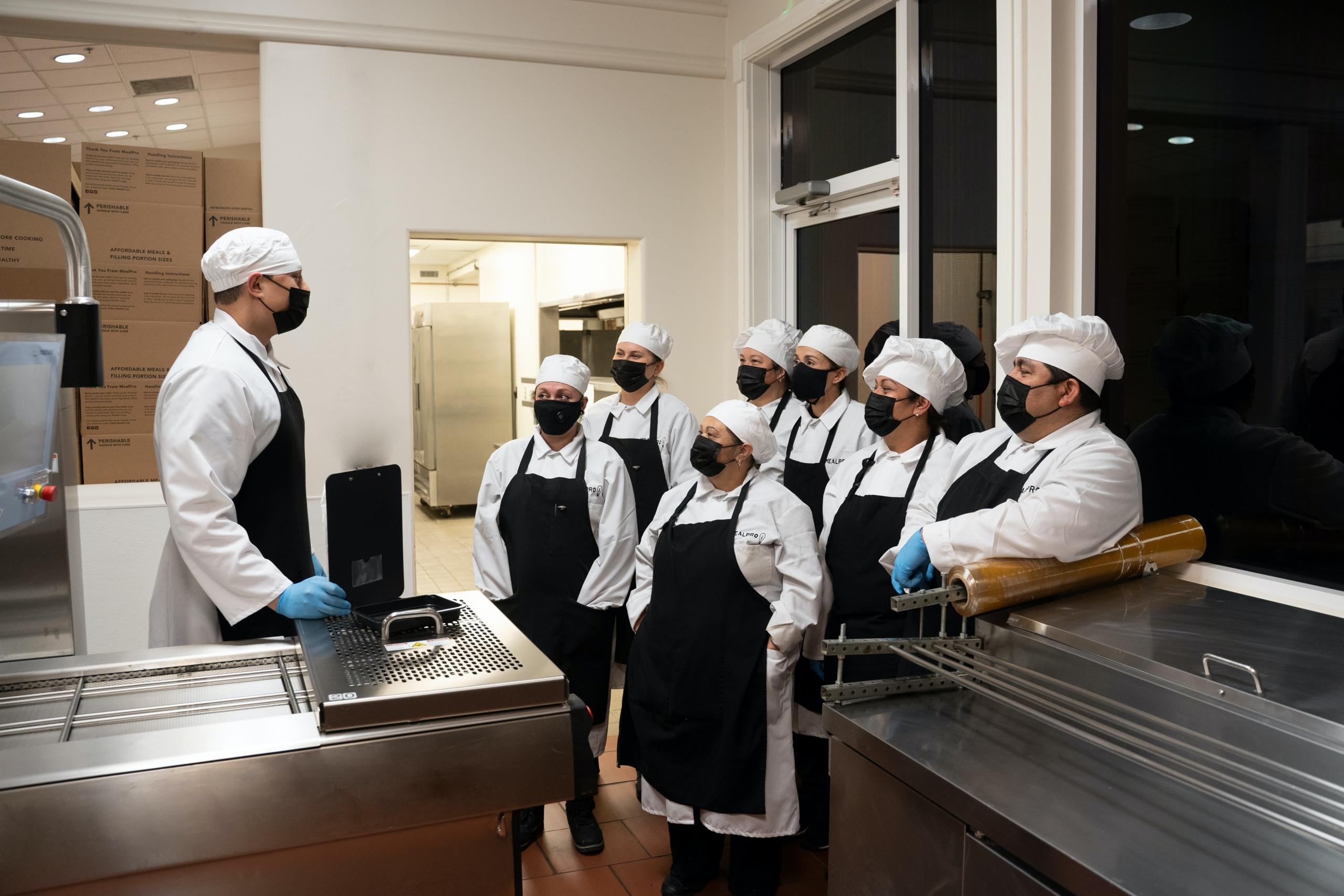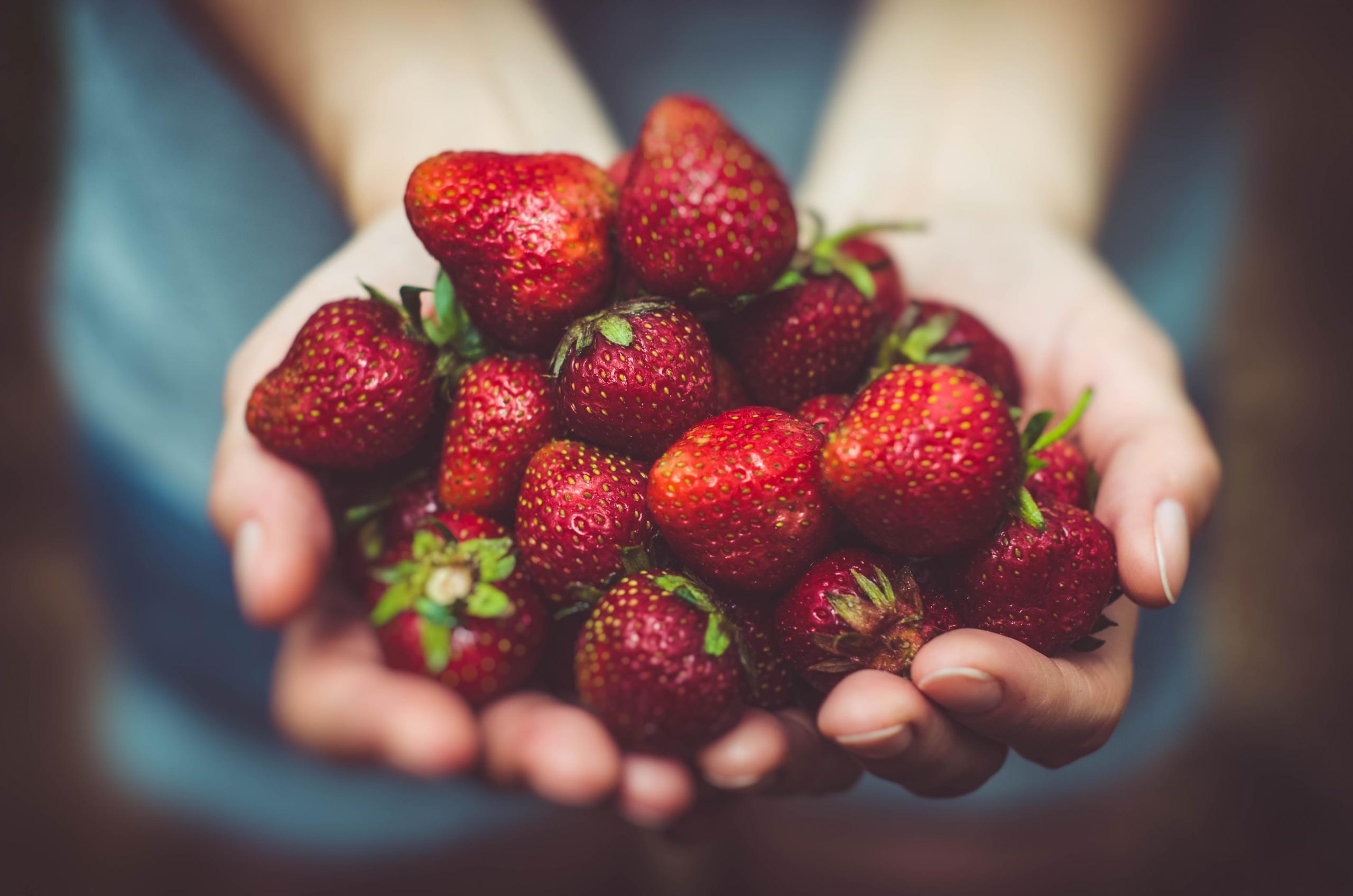"The goal of the food safety professional should be to create a food safety culture, not a food safety program." -Frank Yiannas
Whether we're riding a bike, driving a car, or going out to eat at a restaurant, we want to feel safe and make decisions that promote a secure environment and healthy wellbeing. But, on the other hand, none of us wants to deal with the consequences of getting sick prematurely or hurting ourselves beyond repair, even the most daring of individuals!
So, to guarantee that cooking techniques are correctly overseen, and that food is safe to eat, there are specific guidelines enforced by health officials from the government. Food inspectors may sound like the greatest enemy of cooks; however, they are necessary. They work along with kitchen workers to make sure that everyone is working in a clean environment.
Without further delay, in today's article, we shall focus on the importance of food safety for a chef in the UK and discuss the necessary steps that all members working in a kitchen must implement.

Why is Food Safety an Important Topic in the Culinary Industry?

Food businesses, manufacturers, and restaurants are being encouraged more and more to implement food safety regulations and techniques. But, why? Not only is food safety common sense, but there are many valid reasons, such as the following, to follow food safety in the best ways possible:
- To Please Health Inspectors: at a restaurant, chefs never know when health inspectors will show up; therefore, to ensure that the kitchen doesn't get closed and that things run smoothly, it is of the utmost importance for chefs to adhere to food safety regulations.
- To Comply with Laws: before joining the culinary industry, you may not have realised that food safety regulations and training are a legal requirement. You can't continue running a restaurant and serving customers your delicious dishes if you aren't complying with the laws of food handling implemented by government entities.
- It Protects Customers: many millions of Brits, and people in other countries, suffer from foodborne illnesses, food poisoning, and allergies that result from poor food safety from those working in the food industry. Therefore, to protect clients and ensure no severe bacteria outbreaks from your restaurant, food safety should be a priority.
- Money is Saved: when food safety regulations are respected by all staff members in the food industry, you are saving a lot of money. How's that? Well, nothing is worst for business than a customer who was sick and writes a terrible review. In addition, the reputation of a chef or restaurant can be severely damaged by food-related illnesses. Also, if inspectors find food handling issues, senior staff members may have to pay fines and suffer the risk of closure.
Therefore, after looking at the previously mentioned reasons, it goes without saying that food safety is essential in today's world.
What are the Primary Food Safety Challenges?
Though we all recognise that food safety is of paramount importance in the restaurant, there are still some challenges that even the cleanest chefs and kitchen workers must work hard to fight against. Such as? The following list draws attention to some of the most vital food safety challenges that are present in the world today:
- Changes in our food production and supply that include much more food importation in developed countries,
- Uncontrollable changes in the environment that affect our food items,
- Emerging bacteria, toxins, and antibiotic resistance,
- Changes in consumer preferences and habits that lead to how food is handled,
- Changes in the type of test that diagnose food illnesses and infections.
By understanding the previously mentioned challenges in the sector of food safety, chefs and kitchen experts are more prepared to establish training tips and steps to take.

Food Safety Training Tips and Steps to Take

To ensure that all restauranteurs and Executive Chefs need to set the example. They need to implement specific rules in the kitchen to prevent disease and potential food poisoning.
Nonetheless, it is sometimes difficult to find helpful tips and tricks to ensure secure food handling without knowledge of food safety. But, have no fear, Superprof is here and has found the following steps that chefs should implement to ensure a safe kitchen:
- Keep Everything Clean: by everything, we mean EVERYTHING should be clean! Your cooking station, food items, cooking utensils, and hands should be constantly clean and free of any potential contaminants.
- Separate Raw from Cooked: to prevent serious illnesses, chefs should constantly make sure that raw poultry, meat, and fish should be independent and kept far away from cooked foods. In addition, separate utensils for handling and cutting raw and cooked foods should be used.
- Cook Food Thoroughly: making sure that food items such as chicken, eggs, beef, and fish are cooked at the right temperature and not underdone should be respected at all times. Proper cooking kills all harmful microorganisms.
- Keep Food at the Correct Temperatures: a significant problem of food safety is that persons leave food out at room temperature for longer than they should, which causes harmful bacteria to spread more quickly. Also, foods should be refrigerated at the right temperature.
- Use Safe Water and Raw Materials: when food items are fresh and water is safe to drink, many issues are prevented. Foods should be correctly processed. Freshwater should be treated to make it safe.
It's worth stating that all the previously mentioned food safety tips and steps are courtesy of the WHO, an organisation worth trusting!
What's the Difference Between Food Quality and Food Safety?
While we hear a lot about food safety, and we can easily define it using common sense, we also hear equally a lot about food quality. So, what's food quality, and how is it different from food safety? Since both terms, food quality and food safety, are of prime importance in the culinary world, chefs should regularly become acquainted with both definitions and use the techniques attached to them.
Without further delay, as we have discussed in the preceding subheadings, food safety has to do with the assurance that food items will not cause harm to the consumer when it is prepared and then eaten. Therefore, food safety requires a lot of attention from chefs and other kitchen staff members to implement secure cooking methods and cleaning techniques.
In the simplest of terms, food safety refers to hazards such as bacteria or germs that may make food detrimental to the health of others.
On the other hand, food quality is slightly different because it draws attention to the characteristics of food that are acceptable to the customer or the one consuming the food item. Elements of food quality may include the following:
- Shape,
- Colour,
- Quality,
- Grade,
- Texture,
- Flavour.
Food quality includes the totality of features of the highest level so that it can successfully satisfy the client's needs, wants, and expectations. For instance, the freshness of food, where it was grown, and organic is related to food quality.
So, to best comprehend the stark contrast between food quality and food safety, quality has to do with a food item and whether it's worth is qualified as superior. Safety refers to the methods that are implemented when preparing food in the kitchen.
Food Safety Training Courses in the UK

Whether you have to take a food safety training course for your job or required in your culinary learning, many fascinating things can be learned.
Also, because there are so many employees working in the food industry in fast-food chains, coffee shops, food manufacturing, and restaurants, a variety of private and public companies in the United Kingdom offer courses that specialise in the secure handling of food.
It's worth mentioning that a Food Hygiene and Safety certificate must be acquired in the United Kingdom to work in most jobs in the food industry. This is achieved by completing a course either in-person or virtually. Therefore, a food safety course must be purchased, and a person must meet the level of training for your job role. A professionally printed certificate in the post will be received that can be shown to your employer. Also, since everything is digital nowadays, most courses allow you to download a digital copy immediately upon course completion.
The following are some online schools where a Food Hygiene and Safety diploma may be completed:
- Food Standards Agency: a UK government entity that equips businesses and individuals with the skills they need to practice food safety in the kitchen. The Food Standards Agency offers online e-learning courses such as Allergen Training, Labelling Training, Root Cause Analysis Training, etc. Upon completion, employers receive certificates and are expected to teach their staff about the food safety techniques they have learned.
- Food Hygiene Certificate: known as the UK's largest provider of food safety certificates, the Food Hygiene Certificate website has over 4 million satisfied learners who have completed food safety courses. In addition, there are training programmes for HAACP, Food Hygiene, and Food Allergies.
Although it's an exceptionally suggested asset to have, in some cases, in restaurant settings, it is enough to receive on-the-job hygiene training from food safety inspectors who come in or experienced chefs who know the rules of securely handling food like the back of their hand.
In conclusion, by not glazing over the topic of food safety in the kitchen, chefs are preparing themselves for a stellar reputation and a clean environment!
Summarise with AI:
















